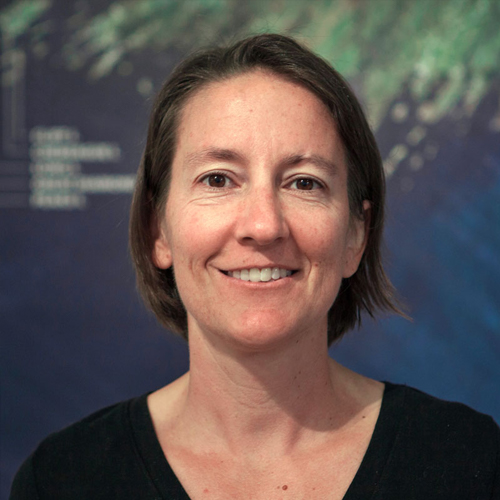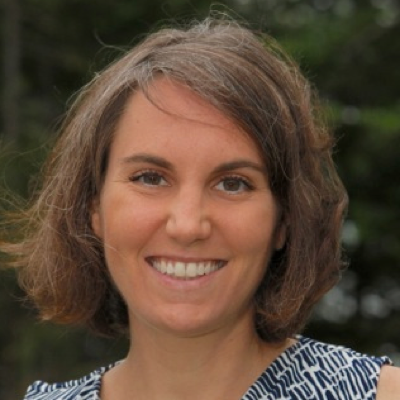
Susie Arnold, Ph.D.
Marine Scientist
As the Marine Scientist at the Island Institute, Susie works on the impacts of climate change and ocean acidification on Maine’s marine resources and fisheries-dependent communities. Through her work, Susie is helping coastal communities better understand the implications of ocean climate change so they can make informed decisions about adaptation. She is also conducting applied research to understand the environmental benefits of kelp farming, including its ability to remediate ocean acidification. With recent appointments to the legislatively established Ocean Acidification Commission as well as the Maine Climate Council’s Scientific and Technical Subcommittee and liaison to the Coastal and Marine Working Group, Susie has emerged as a leader at the interface of science and policy in Maine. Prior to joining the Island Institute, Susie earned masters degrees in Marine Biology and Marine Policy and a doctoral degree in Marine Biology from the University of Maine. Her research focused on coral reef ecology and the importance of protecting certain fish species for the well-being of the entire ecosystem, including those who make a living from the ocean.
Click here to read more about Dr. Arnold’s research.

Nichole Price, Ph.D.
Benthic Marine Ecologist
Nichole Price is a Senior Research Scientist and the Director of the Center for Seafood Solutions at Bigelow Laboratory for Ocean Sciences. She studies how global change phenomena, like ocean acidification and warming, can alter bottom-dwelling species interactions, community dynamics, and ecosystem function in shallow coastal regimes. Her work focuses primarily on the eco-physiology of seaweeds and their current and future role in dissolved inorganic carbon cycling. She is interested in understanding how the balance of primary production/respiration and calcification/dissolution create natural diet variation in carbonate chemistry and perpetuate biological feedbacks. She has focused on these topics primarily on tropical coral reefs, but has also recently expanded her work to include temperate systems. Dr. Price’s research utilizes state-of-the-art analytical tools including novel autonomous instrument packages and custom experimental aquaria and extrapolate results to regional and global scales using statistical modeling.
Click here to read more about Dr. Price’s research.
